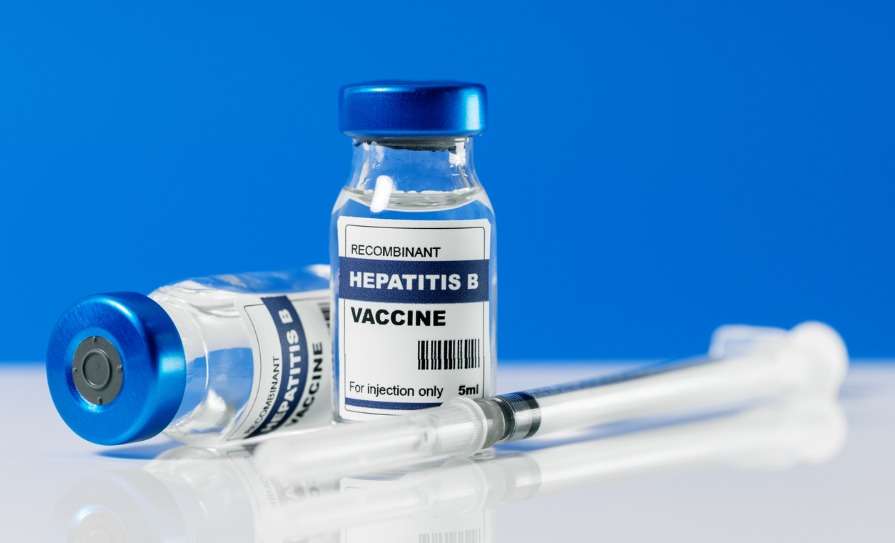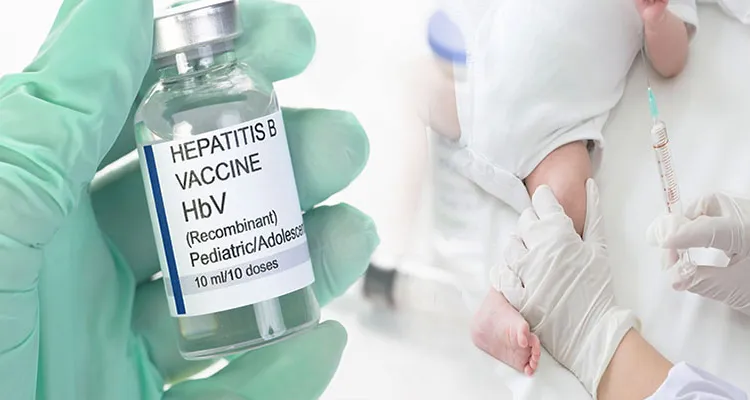The Ministry of Health, in collaboration with its partners, is set to introduce a hepatitis B birth dose vaccine in health facilities across the country.
This strategic move aims to curb the transmission of hepatitis B from mothers to their newborns, a critical step towards reducing the disease’s prevalence and protecting future generations.
Dr. Kwame Amponsa-Achiano, the Head of the Expanded Programme on Immunisation (EPI) at GHS, emphasized the importance of this initiative as part of the GHS’s broader commitment to combating hepatitis B and improving public health.
“Introducing the hepatitis B birth dose vaccine is crucial in our fight against this deadly virus. Our goal is not only to reduce the incidence of hepatitis B but also to achieve broader health goals by 2030.”
Dr. Kwame Amponsa-Achiano, the Head of the Expanded Programme on Immunisation (EPI) at GHS
Dr. Amponsa-Achiano stressed that the success of this initiative hinges on the majority of babies being born in health facilities, where they can immediately receive the vaccine. He urged all pregnant women to ensure that they deliver in health facilities to safeguard their newborns from hepatitis B.
Dr. Amponsa-Achiano outlined the preventive measures that the GHS and its partners are implementing to combat hepatitis B and C, noting that education and vaccination are key.
“Fully vaccinated individuals do not need re-vaccination every 10 years,” Dr. Amponsa-Achiano explained. This message is particularly important as the GHS ramps up its campaign to encourage people to get tested at approved facilities, especially given the steady rise in hepatitis cases in the country.
Dr. Amponsa-Achiano also emphasized the importance of using approved testing kits in health facilities to ensure accurate results. Moreover, he encouraged adults aged 20 and above to visit health facilities for testing, as knowing one’s hepatitis status is crucial for timely and effective treatment.
Role of Local Authorities in Hepatitis Awareness

Local authorities, including municipal and district assemblies, have a pivotal role to play in the fight against hepatitis.
Dr. Amponsa-Achiano urged these bodies to take the lead in promoting awareness, facilitating testing, and linking individuals to care within their communities. He outlined a vision for hepatitis-free districts, focusing on community-based awareness, accessible testing, and comprehensive care services.
The GHS EPI Head also cautioned against the use of unauthorized herbal preparations to treat hepatitis, highlighting the serious health risks associated with such practices. He acknowledged the high cost of hepatitis medications, which often presents a barrier to access for many people.
However, he reassured the public that the Ministry of Health is working with the Africa Medical Suppliers Platform and other partners to make affordable hepatitis medications available.
The introduction of the hepatitis B birth dose vaccine represents a significant milestone in Ghana’s public health efforts. By addressing the risk of mother-to-child transmission at birth, the Ministry of Health and its partners are laying the foundation for a future where hepatitis B is no longer a significant public health threat.
This initiative is not only about protecting individual lives but also about achieving broader health goals, including the World Health Organization’s target of eliminating hepatitis as a public health threat by 2030.
As the country moves forward with this critical intervention, the GHS and its partners will continue to engage communities, raise awareness, and ensure that every child born in Ghana has the best possible start in life — free from the burden of hepatitis B.
READ ALSO: Ghana Government Targets GH¢78 Billion Through T-Bill Issuance in Q3 2024





















